
Noma Dumezweni plays Fiffany in a new dark comedy TV series, Made for Love, an onscreen adaptation of Alisa Nutting’s 2017 novel of the same name, which premiered on HBO Max April 1. Fiffany is a marine biologist and the pioneer of the Made For Love technology that is at the center of a story about connection, divorce, and revenge.
“Fiffany is this sort of Amazonian creature,” Dumezweni says, “She deals with technology and science and she’s in this world that she’s…sort of sold her talents to the highest bidder, that’s how I see it.”
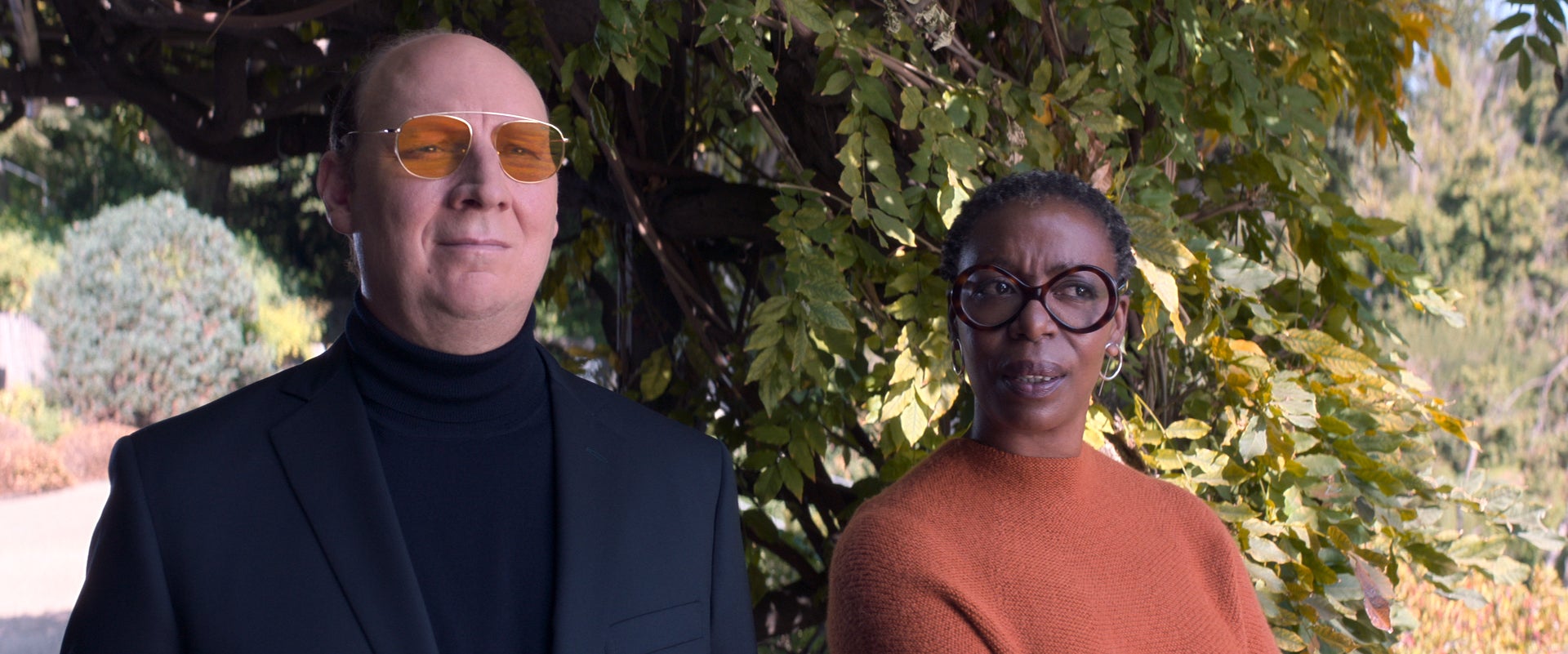
At 51, Dumezweni is just starting to settle into a multifaceted career between the small and big screens alongside her first love — the theater. Her big break came in 2006 when she played Ruth Younger in A Raisin in the Sun, for which she won her first Olivier Award from the Society of London Theatre. In 2016, she starred as the adult Hermione in the much-acclaimed Harry Potter and the Cursed Child play which ran for three years, first at the Palace Theatre in London, and then on Broadway in New York. But in the last few years, she’s also had a plethora of unforgettable roles across TV and film including in Black Earth Rising, The Boy Who Harnessed the Wind, and The Undoing, where she regularly stole scenes as Haley Fitzgerald, an attorney hired to defend the prime suspect of a murder.
As Dumezweni sees it, the varied roles in their different formats have revitalized her sense of novelty; of trying new and different things.
“I’m being a newbie again after 25 years of f-cking grafting and it feels like I’m an overnight [success]…and I like that,” she says.
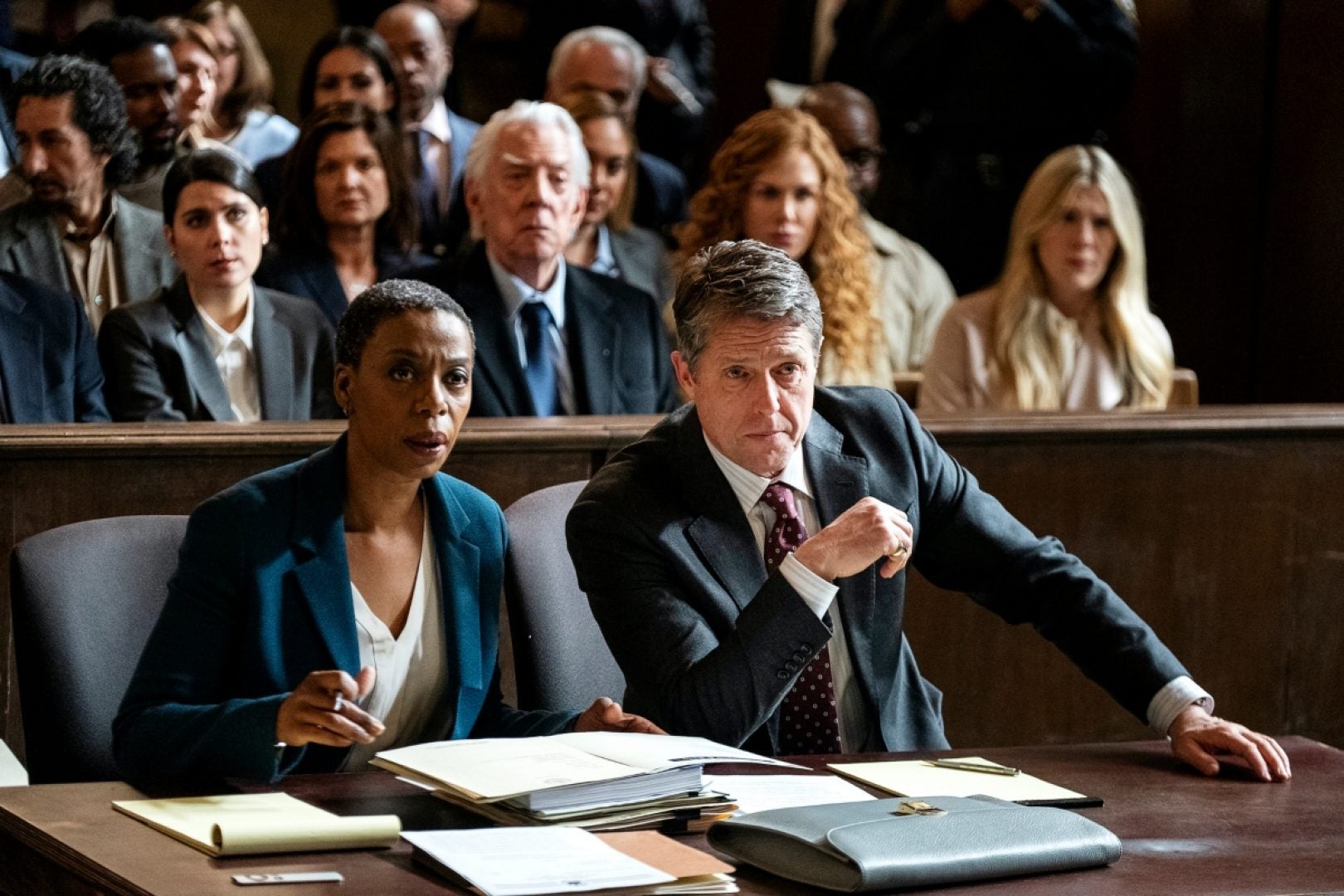
Dumezweni swears a lot — in an enjoyable, effortless way. It’s part of her charm, making her both animated and approachable. She also has that increasingly rare ability to make you feel like the most important person in the room, even when you’re the one interviewing her from thousands of miles away over Zoom.
Dressed in a casual grey sweater, Dumezweni took a break on a Saturday in March to speak to me from London where she’s currently filming the live-action adaptation of The Little Mermaid in a newly created role. It’s Dumezweni’s first trip to London after spending the last year in New York City with her daughter in the city’s Upper West Side neighborhood, due to the Covid-19 pandemic. The sorrows of the pandemic aside, she welcomed the time off.
“Those first few months, I f-cking loved it, I loved it. I loved it,” she exclaims. “I hadn’t really seen my daughter, I realized…So I got to catch up with my girl…and thank God we found out we liked each other,” she adds, laughing.
With her teenage daughter in a school she loves in New York, Dumezweni wants to officially become a transatlantic actor in the near future, splitting her time between the city and London. It would suit her fine, giving the continuous movement that marked her early childhood.
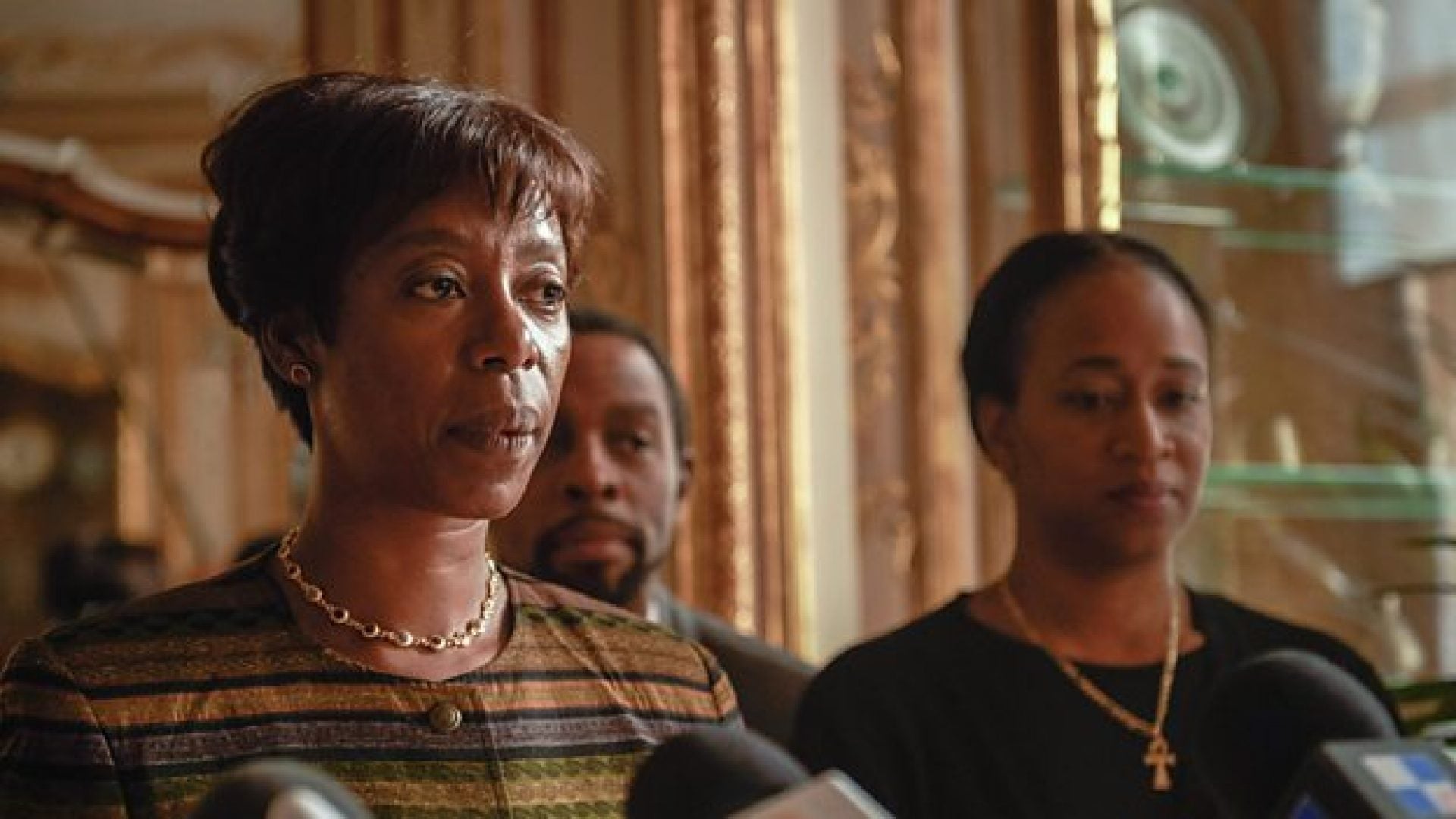
Self-defined as an Afro-Brit, Dumezweni was born in Swaziland to South African parents; her father was in the Community Party of South Africa. Trying to escape the secret police at the time, her family moved to Botswana, Kenya, and Uganda before she, her sister, and mother arrived in England when she was 8 years old, leaving her dad behind.
Despite the instability that such continuous migration can bring at an early age, Dumezweni concludes that this experience gave her compassion early on for all people.
“I do not think you can move around the world and meet different types of people and not be open to our collective humanity,” she says, “But if you are stuck in one place, ‘the other’ seems terrifying, whatever the other is.”
It’s the sort of humanity she affords her characters, and part of what makes Dumezweni so apt at playing varied roles. And whether on stage or onscreen, the essence of an actor is the same, according to her. “The point is to still be truthful and tell a story,” she says.
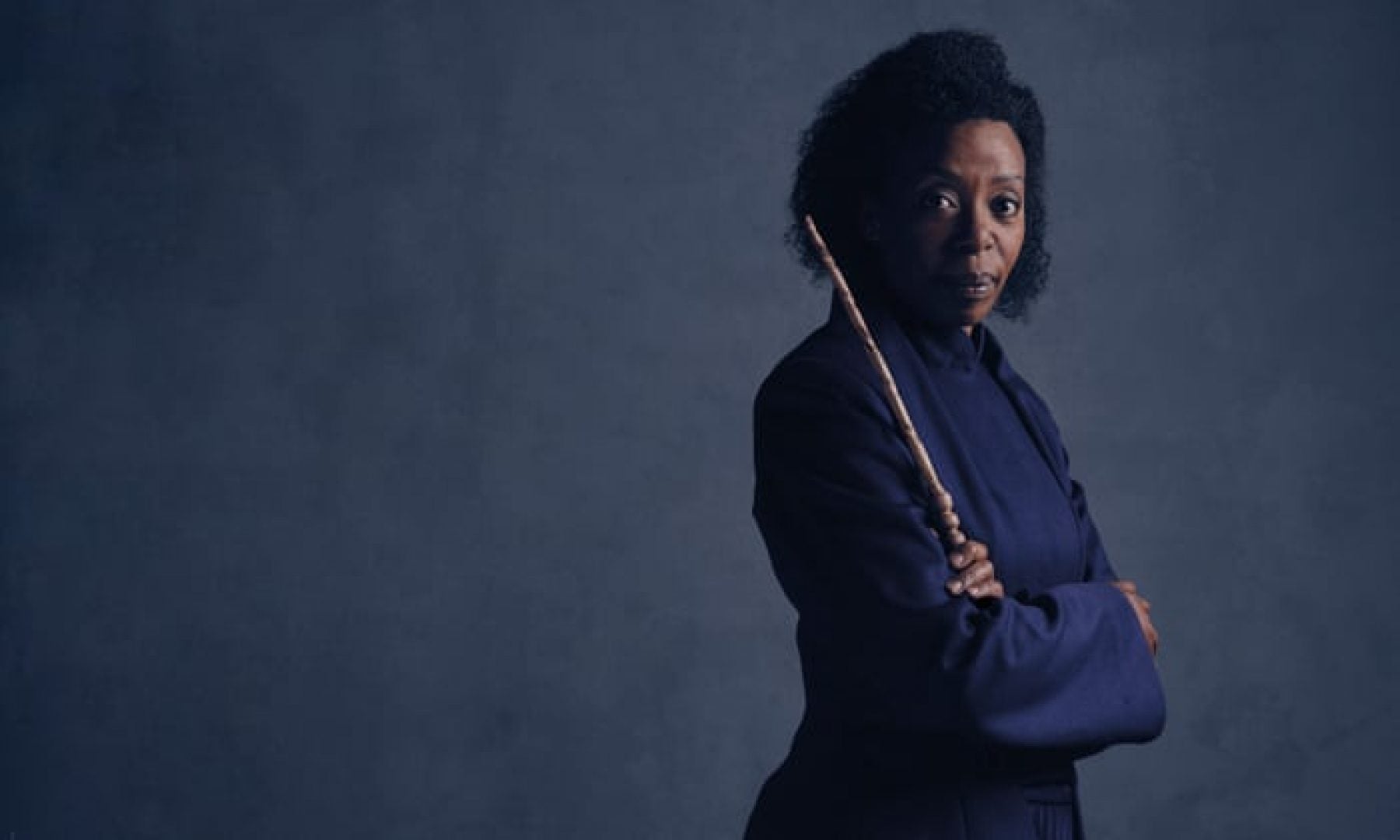
But Dumezweni also offers herself equal humanity. Whether it’s ignoring some of the racist commentary she dealt with in her role as Hermoine, for example, or in how she actually chooses any roles she portrays. She is drawn to stories that cause her to pause, or that shake her understanding of the world. But above all, when deciding on a role, Dumezweni listens to her body.
“Your body, the spirit, something tells…if you listen to those parts of yourselves,” she trails off, then adds, “The more I listen to myself, the more it works out. My body lets me know.”
She says she learned early on in her career that she couldn’t take jobs solely for the money. For Dumezweni, early on meant in her mid-twenties when she decided to commit to acting after being laid off from a job at a PR company. She contemplated pursuing drama school again, which she had attempted after graduating from secondary school, though she didn’t get accepted.
But when she met the man who would become her mentor — a man named Tony — he convinced her that she didn’t need to go to school. He said what she really needed was practice and guidance given how well she naturally took direction.
She also quickly grasped a lesson from Tony that has since shaped her approach as an actor and storyteller. “If you can get people to laugh early on in a moment, you can hit the emotional pain even harder,” she says, “But if you’re on pain at the beginning, you’ve lost everyone by the end, cause there’s nothing…you’re not giving life, you’re not doing anything.”
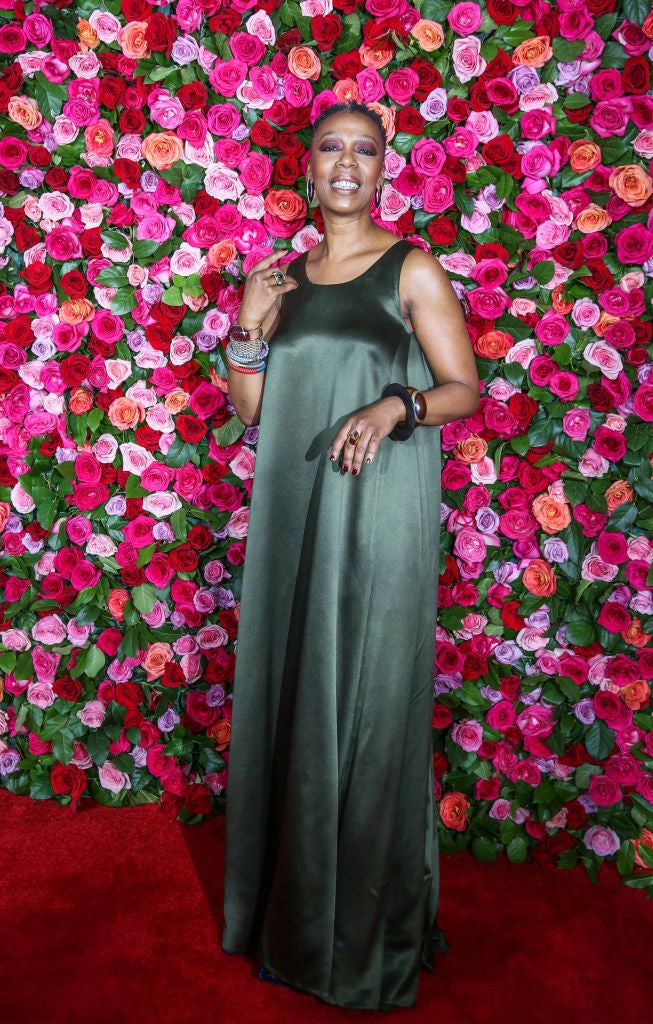
Dumezweni is filled with gems like this, giving heartfelt yet practical advice on creativity, avoiding the clichéd maxims those in her position sometimes propose. She told me she never wants to be the old person who doesn’t understand young people, and if there’s a set of young people she is always hoping to reach, it’s Black women.
“I do believe for Black women especially…this is our time…And it’s scary because we’re stepping into places, we’re stepping into situations…” she trails off, then adds, “I feel as if I’m a signal, a light signal to kind of go, ‘I’m here to cheerlead you on girls!’”
Among the most important lessons from her over two and half decades of work, especially for those who endeavor in the arts and creative fields is to be single-minded in your efforts. “For me, what’s the point of a plan B? You’ve got to go for it all the way until it says no…until it says no,” she says, “And therefore, it’s clear for you to say no.”
It’s hard to imagine Dumezweni getting told “no” on just about anything these days. She says she’s working on getting used to just being in the rooms she’s in, alongside actors she’s long admired, and not worrying about being fired. With a long career ahead, she’s now in the driver’s seat — and at the risk of being too corny — she can seamlessly switch across multiple lanes constantly. In fact, that’s really what she wants to be able to do.
“The ideal living is a theater gig, a film gig, a TV series, now that’ll be ideal, and loads of radio in between. Yes, please,” she says, with a smile.